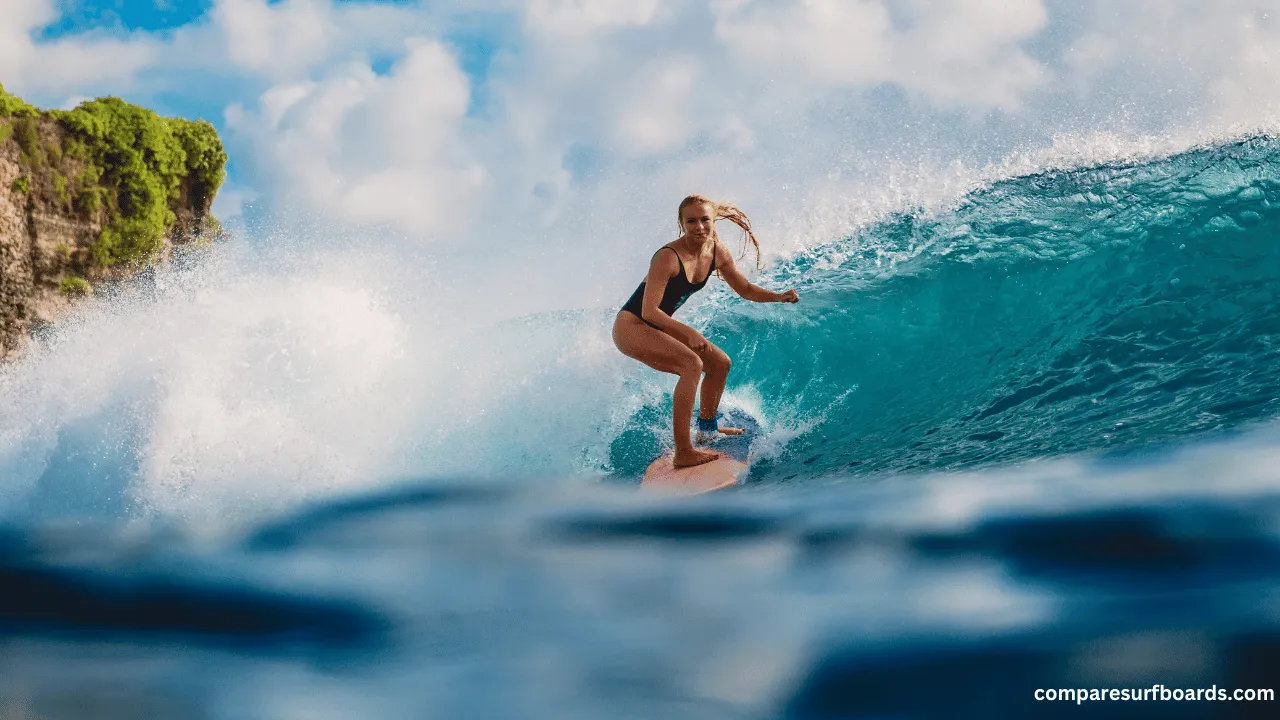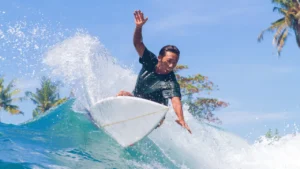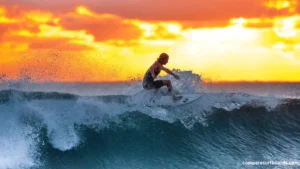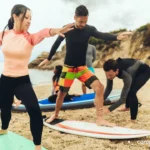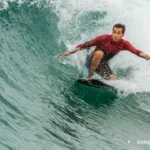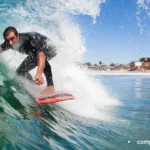Surfing, an exhilarating blend of athleticism and nature, has long captured people’s imagination and spirit of adventure. No matter if it’s your first time paddling out or you have been riding waves for years – there is always something new to learn on its vast seas.
This comprehensive guide is intended to offer beginners essential advice, while offering insights even experienced surfers may have missed. Let’s dive into our top 8 tips for learning how to surf safely – making sure your journey on the waves will be both thrilling and safe!
Surfing is an unparalleled sport that gives participants a powerful sense of freedom and connection with nature. More than physical prowess alone, surfing requires patience, respect, and an in-depth knowledge of water dynamics – qualities not easily found elsewhere!
As with any sport, surfing presents its own set of unique challenges. This guide aims to equip you with knowledge and strategies for overcoming them quickly, improving your surfing experience from day one.
Before your first ride, understanding the fundamentals of surfing are essential. Every surfer needs to understand:
Contents
Tip #1: Choose the Right Gear
For beginners, a longboard may be best as its stability and ease of catching waves are ideal for learning how to surf. As your skills advance, experimentation with different board shapes and sizes will allow you to find what best fits your surfing style and conditions.
Importance of Wearing an Appropriate Wetsuit
An effective wetsuit that fits snugly is essential, not just for warmth but also to prevent rashes and ensure comfort while paddling and standing up. Finding suitable gear will set the scene for an enjoyable surfing experience.
Tip 2: Work With Trained Instructors or Schools
Investment in surf lessons with trained instructors can greatly accelerate your learning curve, helping ensure you understand safety, technique and etiquette from day one. A good surf school also provides an ideal learning environment in which mistakes can be safely made without risk to either party involved.
Tip 3: Surf Safely
Safety when surfing is of utmost importance, from keeping a safe distance between other surfers to wearing leashes and rash guards. Knowing how to fall safely without impacting the board during an accidental wipeout is also crucial in order to prevent injuries.
Tip 4: Get in Shape
Surfing can be physically taxing. Prepping your body through cardio, strength training and flexibility exercises will greatly enhance your ability to paddle effectively, catch waves easily and extend sessions.
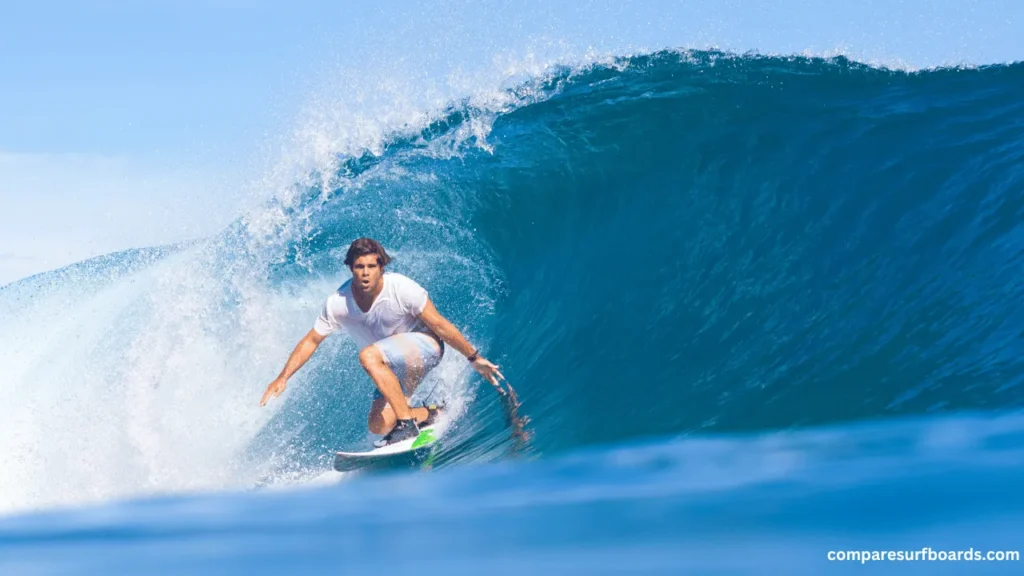
Tip 5: Learn Surfing Etiquette
Respect in the lineup is of utmost importance. Learning and adhering to unwritten rules of surfing not only prevent accidents but also foster harmony between surfers. Be patient when taking turns or accepting priority and always surf responsibly for others and the environment.
Tip 6: Master Paddling Techniques
Effective paddling is at the core of surfing. Building strong shoulders, arms, and back muscles along with practicing proper techniques will increase your ability to catch waves while saving energy during longer sessions.
Tip #7: Practice Makes Perfect
Persistence is key when it comes to surfing. Regular practice in different conditions will build your confidence and skill; having a partner in surfing can motivate both of you to push beyond your limits while sharing in the thrills.
Tip 8: Enjoy Surfing
At its core, surfing should bring joy and personal fulfillment. Approach each session with an open mind and positive outlook to maximize its benefits and the surf lifestyle’s challenges and rewards.
Conclusion:
Surfing is more than a sport; it’s a lifestyle. By following these eight essential tips for beginners or experienced surfers alike, beginners can begin their surfing journey confidently while experienced surfers may discover ways to further refine their practice.
Remind yourself that every surfer was once a beginner – embrace the learning process, respect the ocean, and most of all enjoy every moment out on the waves!
Surfing provides endless thrills and lessons – whether you’re learning your first white water ride or diving head first into a towering barrel! Paddle out, learn, and let the waves guide your path to adventure!
FAQs
1: What is the ideal age to begin surfing?
Surfing can be enjoyed by people of all ages; people of any age who are physically healthy and comfortable in the water may begin surfing lessons. Children, in particular, must possess basic swimming skills before beginning under supervision from a trained instructor.
2: How long does it take to learn surfing?
Timelines vary for learning to surf depending on individual factors such as physical fitness, swimming ability and frequency of practice. Most can stand up on a board and ride waves after just a few lessons; becoming proficient may take months or years of dedicated training.
3: Is surfing dangerous?
Surfing may carry risks similar to any sport; its unpredictable ocean environment increases this potential risk and could cause injuries if done improperly or without adequate instruction, safety precautions and awareness of one’s limits and conditions. With proper instruction, safety measures and awareness, risks associated with surfing can be significantly mitigated.
4: Can I learn to surf without taking lessons?
Though you can learn to surf without formal lessons, taking lessons with a certified instructor will speed up the learning curve significantly and ensure you fully grasp essential safety protocols, techniques, and surfing etiquette.
5: What should I do if I’m afraid of waves?
Beginners often feel intimidated by waves. To combat your anxiety, start off slowly by practicing in small, manageable waves before gradually increasing the difficulty and building up confidence and skills. Breathing techniques and mental strategies may also prove beneficial in controlling fear and anxiety.
6: How can a beginner select an appropriate surfboard?
Beginners should start out on a longboard, which provides greater stability and accessibility due to its size and volume. As their experience develops, shorter boards may become more suitable. It may also be worthwhile consulting a surf shop or instructor for personalized advice.

